BY ASHA SWANN
On Dec. 2, hundreds of people gathered in Toronto’s Queen’s Park to protest sexual harassment and assault. The #MeToo March was inspired by the recently viral online hashtag, where people used the tag to publicly post that they had experienced sexual harassment or assault.
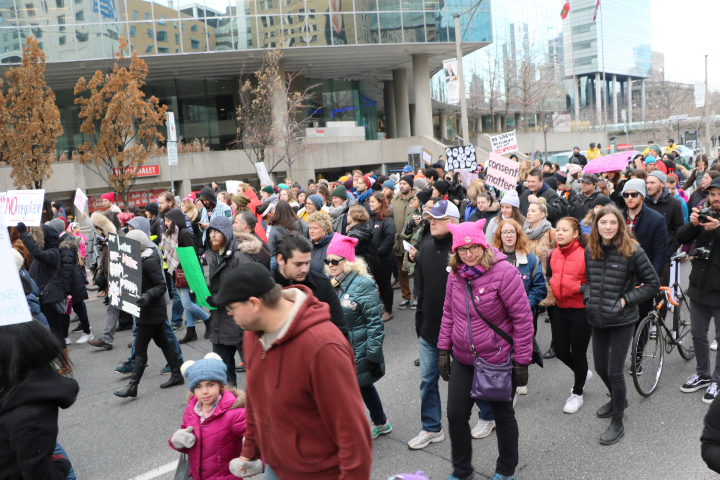
“I’m a survivor of sexual assault, sexual abuse, sexual violence,” said Alathea Caroline, one of the march co-organizers. “This process has pushed me to accept all these parts of myself and to embrace them and force me to confront the fear and step out of it.”
The march began in Queen’s Park with speakers sharing their stories. Many people said that the event gave them hope for change.
“It’s scary to be honest about who we are, where we come from, our experiences,” said Caroline. “I hope that this is momentum for the future for my daughter.”
Others agreed, saying changes need to be made.
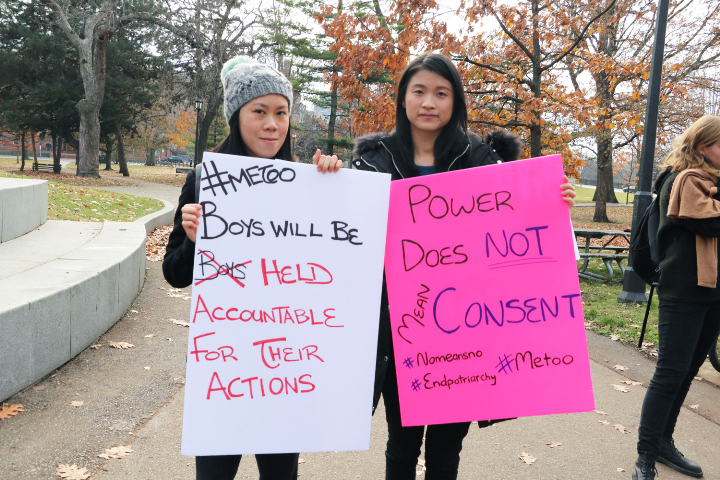
Many people in attendance used the march as a chance to speak out about the abuse they endured and how important it was to have someone support them.
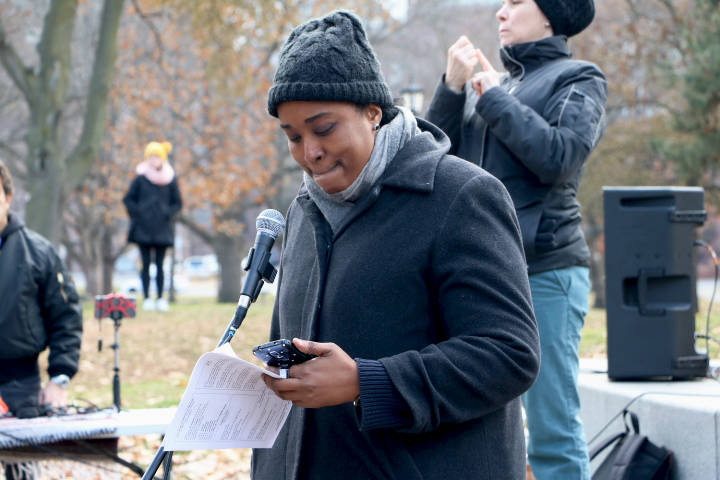
“I lost my innocence, I lost my laughter, I lost my safety…I lost my body,” said Jill Andrew, who was sexually abused by a family member at the age of seven. “Something happened to me the day I told my mother and it is the sole reason I am alive today…She believed me. My mother believed every single word I said. She allowed me to yell, to scream. I learned how not to hate my body.”
Andrew later went on to co-found Body Confidence Canada, an organization that supports body diversity and inclusion. She also spoke about how bystanders play a role in ending sexual abuse as well.
“To the men in our lives, we need you to stand up and say ‘Goddammit, I’m standing with you,” she said.
For some, the march was a chance to dispel myths about sexual assault, saying it’s about the ability to control someone, not whether or not they are attracted to the person.
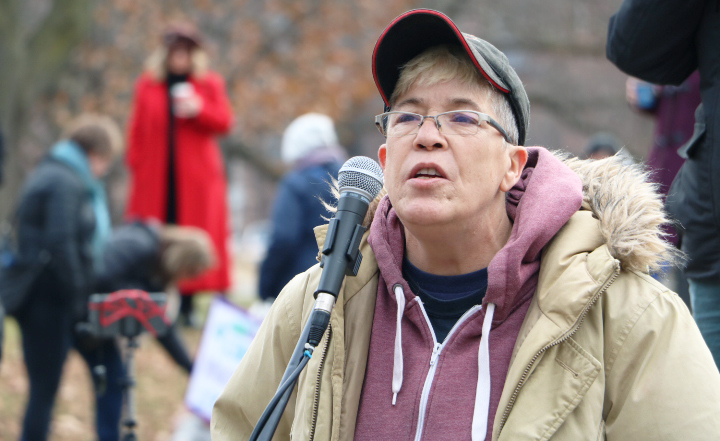
“I grew up being butch. When I was little, everyone thought I was a boy,” said Nicole Tanguay, a survivor and Indigenous rights activist for over 25 years. “I thought that would actually keep me safe, and it didn’t. It’s not about sex, it’s not about love, it’s about control.”
Also in attendance at the march was Kristyn Wong-Tam, a second-term Toronto city councillor. She spoke about using her position in government to support victims.
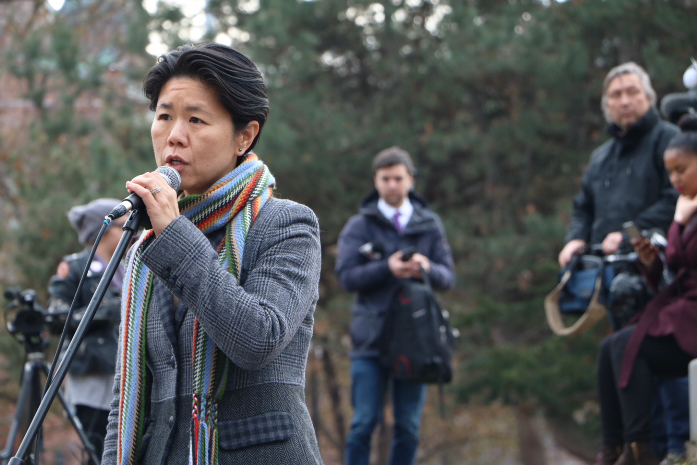
“As we think about violence and the perpetrators of violence, let us not forget the institutions, governments that sanctioned violence when we know we could do better,” said Wong-Tam. “We have a responsibility at City Hall to make sure you are supported. There are too many people who have experienced violence.”
Since #MeToo went viral, the Toronto Rape Crisis Center has been “flooded” by calls from survivors seeking support.
The march went around Queen’s Park Crescent, south on University Ave. toward Queen Street, and then east toward Nathan Phillips Square, where it concluded right next to the outdoor skating rink.
For those seeking assistance, the Toronto Rape Crisis Centre can be reached at its 24-hour hotline, 416-597-8808
